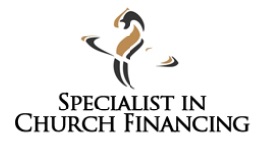Church Financing Expert Services
Church Financing and Guarantee
Church financing is a type of commercial loan that is specifically used for religious organizations. The type of church financing we offer generally differs from traditional commercial loans in a few important ways. Most of the church loans products we offer do not have personal guarantees. However, there are exceptions to this and circumstances where we do need personal guarantees. In general, a personal guarantee requires if the church cannot qualify for a loan based on its income but the leadership of the church still wants the loan. For instance, if a church can afford to borrow $500,000 on its own, but the leadership is looking at buying a property and $600,000 of financing is needed to close.
In most cases, the entire amount financed will be personally guaranteed, not just the amount over what the church can afford to borrow. There are times when a limited guarantee can be offered for either less than the full amount of the loan or a limited period of time or until some condition is met which makes the underwriter comfortable. For example, there are times when the underwriter might offer you the full amount of church financing you are requesting provided they receive personal guarantee(s) strong enough to make them feel comfortable. Such personal guarantees might drop off after the church reaches and holds a Debt Service Coverage Ration that makes the underwriter comfortable for a period of time.
Church Financing and SBA Loans
There are other differences between the church financing products we offer and traditional commercial loans. Some traditional commercial properties, like owner occupied, or mostly owner occupied commercial real estate qualify for SBA Loans. SBA loans are loans are guaranteed by the government so if the mortgage is not paid and the lender has to foreclose on the property owner, the government will make the lender whole for any losses they sustain. Non-profit organizations including churches, do not qualify for SBA loans under normal circumstances. The exception to this rule is during times of emergency, where the SBA issues Disaster Relief Loans (think Hurricane Katrina).
Foreclosure
When a traditional for profit borrower falls behind on its payments to a lender, it will often find out quickly that most lenders are unforgiving and will take legal action to protect their interests including foreclosing on the property very quickly. This is where churches benefit from the type of organization they are. In many instances, a traditional lender that would not think twice about taking a property from a traditional business will work with a church when they get into trouble. Often a lender will give the church interest only payments for a period of time, allow them to tack on past due payments to the end of a loan, wave penalties, among other things. However, when the lender decides that they have done all they can and the church is still unable to make the payments then foreclosure is probably eminent.
Private Money Loan
If a church finds itself in a position where its payments are late and they are unable to refinance with a traditional loan or borrow money from members then one of the last options is a Private Money loan. There are very few companies in the country that offer Private Money Loans to churches, and we happen to be one of them. We offer traditional loans with great interest rates and loan terms,and when a church is in trouble, we have a solution. The Private Money loans we offer are lenient and creative and can often be closed extremely quickly. Click Here to go to our Private Money Page and learn more.
Seller Held Second Trusts
Using Seller Held Second Trusts in conjunction with traditional church financing. A Seller Held Second Trust is a loan from the seller of a property to the buyer of the property for a portion of the total amount the buyer is borrowing. In most cases, the church loans we offer have a maximum Loan to Value of 80%, what this means is that if you are buying a property for $1,000,000 the lender will agree to loan to the church $800,000 and you need to come up with $200,000. What if you don’t have $200,000 and you cannot raise the shortfall quickly? Sometimes a seller will agree to loan you some of the shortfall so it may be possible to have the church put down 10% of the purchase price and the seller hold 10% of the purchase price and the lender carry the rest.
Subordinate Position
The loan from the seller of the building to the church is in a subordinate position to the loan from the lender. Being in a subordinate position means that if something goes wrong and the lender has to foreclose and take the building, the seller loses all of their money before the lender loses any of their money. If there is enough money to pay off both the lender and the seller, then the seller will be paid off also. But, if there is a loss, all of that loss is bore by the property seller before the lender incurs any loss. There are lots of nuances to using a seller held note and they do not always work and for purposes of describing how the process works, I have greatly simplified things here.

